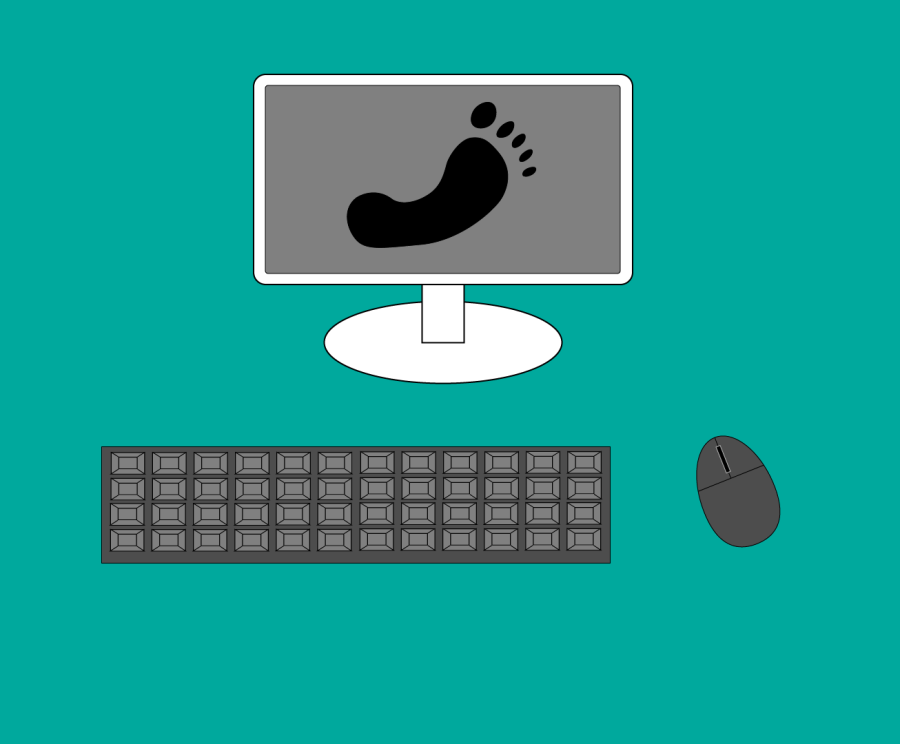Google Your Name: Results are Shocking!
Despite growing up in a digital era, many are unaware of how their digital footprint follow them.
January 25, 2022
The idea of things we post online being permanent is something that many people, myself included, tend to ignore. However, when I recently Googled my name the results surprised me, bringing me to the realization that I should keep a closer eye on my digital footprint. The thought of strangers being able to find the town I live in, as well as the school I currently attend via something as simple as a Google search is unsettling to me, and I believe many others would feel the same way.
“I’m private on all my social media accounts and most of them aren’t really under my name, but if you were to Google me a lot of stuff from high school and college would pop up,” English teacher Bailey Hightower said. “And if you follow that rabbit hole, even though I’ve deactivated my Facebook account, all of that still shows up. You can deactivate it, but it’s still there.”
Some of the things that Hightower mentioned not wanting to see were embarrassing pictures or posts from middle school years.
“The idea that these memories of mine are now out there on the internet for anyone who doesn’t know me, or has no context about me to find is a little intimidating,” Hightower said. “I think in a job like this, being a teacher where you want to have some separation and some boundaries, this is not always helpful.”
The way students look at their digital footprint is very different from the way teachers do. Like many students, Freshman Hayden Stecher feels comfortable with his level of online security.
“I normally only accept people that I personally know, I won’t just follow random people or anything,” Stecher said. “You don’t want people stalking your social media accounts.” Stecher also expressed his thoughts about random people online seeing any of the content that he has posted. “It’s a little weird, but you know, if I don’t know about it then it’s okay.”
This raises the question: how many people feel the same way? Are we really doing enough by simply saying what we don’t know can’t hurt us? Science teacher Reed Howard shared a valuable lesson he’s learned from his own experiences with social media. He helps illustrate the idea that feeling safe online and being safe online are two very different things.
“I got myself in trouble a couple years ago by putting a hot take out there that got picked up by a newspaper in another part of the state,” Howard said. “I was getting all these angry tweets from people in Hutch, that I have no idea who they are. “It got back to me so at this point I was like okay, turns out this is actually a global platform and not just a local platform.”
It’s important to realize that posts, especially from a public account, can be seen by anyone. Yes this seems like common sense, but it’s also something that a lot of people overlook and downplay the seriousness of.
Ms. Ball teaches debate and forensics, and as both classes require extensive research, she has more knowledge on finding information online than most.
“I don’t think a student should be able to find a teacher’s address, but I also know it’s possible,” Ball said. “I’ve looked up people to send their mail to them, like ‘oh I need to send so and so a sympathy card,’ you can find all that stuff if you know the right thing to look for.”
Ball has personally taken specific steps to keep her own digital footprint to a minimum.
“One: I do ask people not to post my image, or information about me. Two: I minimize my social media presence. I think we live in a world that tries to make us constantly available, whether it be through Twitter, Snapchat, Instagram,” Ball said. “I don’t think it’s necessary for me to live digitally, because I want to live a real life.”

